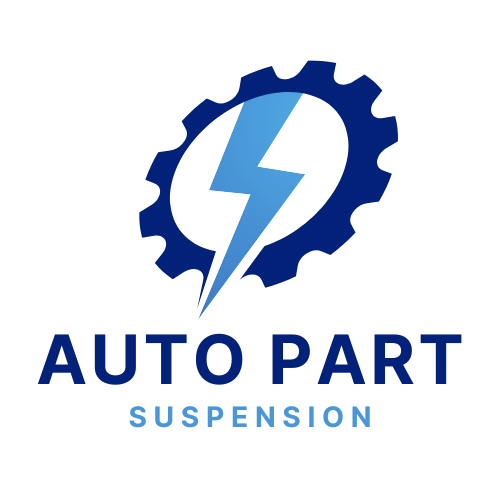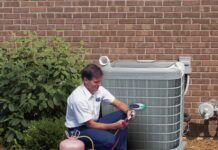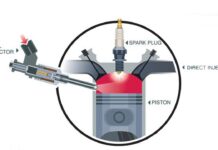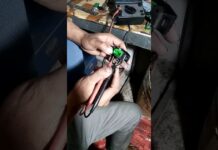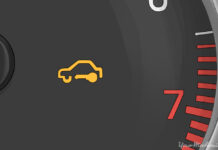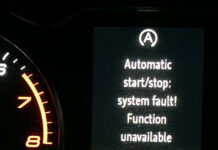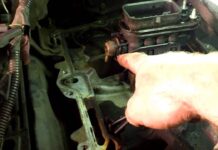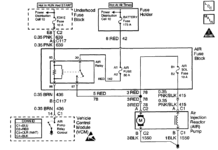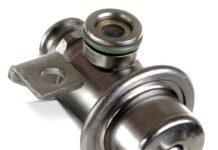What are the symptoms for turbo failure? What causes turbocharger failures? Why does the turbo fail to work? How does the turbo work ?….
The turbo or turbocharger is an auxiliary part that increases the engine’s power. Even if your engine is small, turbos can be used to increase performance and reduce the cost of larger engines. Many automakers now use turbos to power their engines after the emission laws were passed. The smaller engine also has many environmental and financial benefits for drivers.
How does Turbo work?
To generate power, your engine uses a combination of fuel and air. To increase your engine’s power and keep the running cost low, you can add more air. The exhaust gas outlet pressure is what propels the turbo. There are two propellers in the turbo: the compressor and turbine. The turbine rotates in accordance with the exhaust pressure and rotates the compressor impeller using the help of the connecting shaft. This pump boosts your engine’s horsepower by injecting more air into the cylinders.
What Causes Turbo Failure?
There are many reasons that turbo failure could occur.
– Soot Deposit: To function properly, turbo requires oil. Inadequate oil use or poor quality oils can lead to soot buildup which can cause corrosion to the turbo system and engine. These deposits can be prevented by using synthetic oil.
– The vehicle’s age and mileage Turbos are built to last for the entire life of your vehicle. However, turbos can fail or wear down over time. Turbochargers can run between 150,000 to 250,000 km without problems. It all depends on the turbo installed and how hard you drive your car.
– Cracked, broken or worn gaskets: Oil can leak from the exhaust system if there are damaged gaskets between compressor and engine. Some of the air lost is caused by cracked gaskets. The turbo must work harder to raise the pressure. This is a common problem in turbocharger failures.
What are the symptoms of turbo failure?
Although the turbo system has a very long life expectancy, it can still fail due to misuse or mechanical issues. These are the most common symptoms of a turbo system fault.
1- Slow Acceleration
Turbos are designed to increase the power of your car. The first sign is a loss of power and slow acceleration. The turbo system should be checked if your car does not accelerate as fast as it did before. The turbo system may be blocked if the turbo isn’t working when you press the gas pedal.
2- Fat Burning
A turbo failure is often indicated by excessive oil burning. Disconnect the pipe in front of the turbo. You can inspect the turbine with an endoscope. Oil in the turbine is an indicator of a problem. If the problem doesn’t get resolved quickly, the turbo may be thrown away.
3- Excessive Exhaust Smoke
Oil can leak from the exhaust if the turbo housing cracks or the inner seal wears. You will notice a distinctive blue or gray smoke from the exhaust when the oil has burned. When the turbo is used, the smoke will be even more noticeable. If you notice smoke when you turn on your engine, this could be a sign of a defective turbo.
4- Check Engine Malfunction Lamp
Modern cars will light up the Check Engine Warning Lamp located in the driver’s instrument cluster when the turbo fails. Lamp burning could be caused by a simple fault in the turbocharger or a more serious turbo fault. The ECU (Engine Control Unit), monitors the drain tube to ensure that it relieves pressure within the turbocharger manifold. Every car makes and models allow for a different minimum or maximum pressure tolerance. These systems are very sensitive. If the pressure exceeds acceptable levels, the ECU will emit a fault code that will illuminate the Engine Malfunction Light. If this happens, you should take your vehicle to a mechanic.
5- An increase in fuel consumption
A turbocharged vehicle offers outstanding fuel economy, which is one of the greatest advantages. If the wastegate hose becomes clogged or leaks, it can cause unused fuel to be ejected out of the exhaust system. This can lead to both performance and fuel consumption problems.
6- Turbo Beeping
A faulty turbo may beep uncomfortably and loudly. This sound is often similar to a siren. It can also be compared with the sound of wind in stormy weather. The size of the fault increases if the volume is increased. You may have a turbo malfunction if you hear a whistling sound and the symptoms described above.
Turbocharged engines require frequent maintenance because they are finely tuned machines. To avoid any damage to your turbocharged engine or turbo, you should immediately contact a mechanic if you see any of these warning signs.
